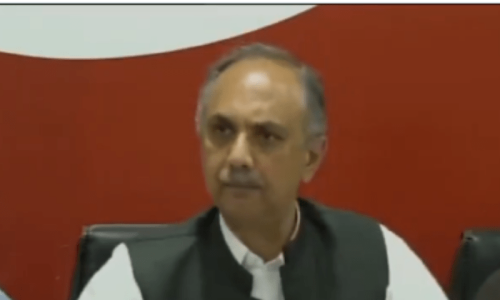WASHINGTON, Dec 2: US-sponsored wargames that simulate capturing Pakistan’s nuclear weapons to prevent them from falling into wrong hands are having a negative impact, experts say.
On Sunday, The Washington Post carried a detailed report on such exercises, pointing out that the all such games came to the same conclusion: Pakistan’s cooperation -- particularly that of its military – was crucial.
According to the Post, the US government has conducted several such games in recent years, examining various options and scenarios for Pakistan’s nuclear weapons: How many troops might be required for a military intervention in Pakistan? Could Pakistani nuclear bunkers be isolated by saturating the surrounding areas with tens of thousands of high-powered mines, dropped from the air and packed with anti-tank and anti-personnel munitions? Or might such a move only worsen the security of Pakistan’s arsenal?
“Our best bet to secure Pakistan’s nuclear forces would be in a cooperative mode with the Pakistani military, not an adversarial one,” Scott Sagan, a Stanford University expert on counter-proliferation told the Post.
Feroz Khan, a retired brigadier who until 2001 was the second-ranking officer in the Pakistani Strategic Plans Division, warned that holding wargames exploring the possibility of capturing Pakistan’s nuclear weapons might worsen the situation.
Such exercises, he said, antagonised Pakistanis and might encourage the government in Islamabad to take countermeasures. “You might just want to remember Desert One,” he added, referring to the botched US mission to rescue American hostages in Iran in 1980.
As a result of US government studies of the nuclear issue, Pakistani officials had come to believe a US intervention “is a real threat now,” Mr Khan said. The Pakistani military almost certainly had taken steps to forestall such a raid, he said, such as creating phony bunkers that contain dummy nuclear warheads. He estimated that Pakistan’s current arsenal now contained about 80 to 120 genuine warheads, roughly double the figure usually cited by outside experts.
Zia Mian, a Princeton University physicist and expert on nuclear proliferation in South Asia, agreed. “It may actually make things worse, to attempt that sort of thing,” he said. Among other negative repercussions, he predicted, any US effort to secure Pakistan’s nuclear arsenal “would really increase anti-Americanism.”
US intelligence officials and counter-proliferation experts, interviewed by the Post, however, insisted that an internal break up could allow religious extremists in Pakistan to grab some of the nuclear, not necessarily to use them but to wield them as a symbol of authority.
Robert B. Oakley, a former US ambassador to Pakistan, said that although US officials expressed confidence in the current security measures, the more they examined the risks, the more they realised that there were no good answers. “Everybody’s scrambling on this,” Mr Oakley said.
One participant in last year’s game told the Post that there were no palatable ways to forcibly ensure the security of Pakistan’s nuclear weapons -- and that even studying scenarios for intervention could worsen the risks by undermining US-Pakistani cooperation.
Mr Sagan argued that mere contemplation of a US intervention might actually increase the chances of terrorists acquiring a nuclear warhead. He said that in a crisis, the Pakistani government might begin to move its nuclear weapons from secure but known sites to more secret but less-secure locations.
“If Pakistan fears they may be attacked,” he said, then the Pakistani military had an incentive “to take them out of the bunkers and put them out in the countryside”.
In such locations, Mr Sagan concluded, the weapons would be more vulnerable to capture by bad actors. “It ironically increases the likelihood of terrorist seizure,” said Mr Sagan, who in the past had advised the Pentagon on nuclear strategy.
He noted that Pakistan moved some of its arsenal in September 2001, when it feared it might be attacked. But Brig Khan said that Mr Sagan’s fears were misplaced. The weapons “are in secure bunkers, with multiple levels of security, and active and passive measures” to mask their presence, he said. And while he conceded that the Pakistani government moved some nuclear weapons in 2001, he said the shifts made the arsenal more secure, not less.
















































Dear visitor, the comments section is undergoing an overhaul and will return soon.